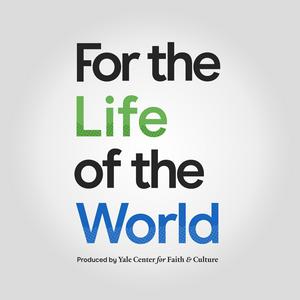Lonely Tech: AI, Isolation, Solitude, and Grace / Felicia Wu Song (SOLO Part 3)
Is technology the source or salve of social isolation? Given the realities of increasing division, the epidemic of loneliness, and unwanted isolation today, how should we think about the theological, ethical, and spiritual dimensions of the human experience of aloneness?“AI technologies aren’t capable of creating conditions in which grace can happen—it’s endemic to personhood.”This episode is part 3 of a 5-part series, SOLO, which explores the theological, moral, and psychological dimensions of loneliness, solitude, and being alone.In this episode, sociologist Felicia Wu Song joins Macie Bridge to discuss the sociology of solitude, loneliness, and isolation, framed by today’s most pressing technological challenges.Drawing from her work on digital culture and AI, Song distinguishes between isolation, loneliness, and generative solitude—what she calls “positive aloneness.” She explores how technology both connects and disconnects us, what’s lost when care becomes automated, and why the human face-to-face encounter remains vital for grace and dignity. Together they consider the allure of AI companionship, the “better-than-nothing” argument, and the church’s local, embodied role in a digitized age. Song invites listeners to rediscover curiosity, self-reflection, and the spiritual discipline of solitude as essential practices for recovering our humanity amid the noise of the crowd.Helpful Links and ResourcesFelicia Wu Song, Restless Devices: Recovering Personhood, Presence, and Place in the Digital Age — https://www.ivpress.com/restless-devicesAllison Pugh, The Last Human Job: The Work of Connecting in a Disconnected World — https://press.princeton.edu/books/hardcover/9780691240817/the-last-human-jobDavid Whyte, “Solace: The Art of Asking the Beautiful Question” — https://www.amazon.com/Solace-Art-Asking-Beautiful-Question/dp/1932887377Sherry Turkle, Alone Together: Why We Expect More from Technology and Less from Each Other — https://www.sherryturkle.com/alone-togetherEpisode Highlights“Even though I study technology, I’m really interested in what it means to be human.”“What happens when we have technologies that always bring the crowd? The crowd is always with us all the time.”“Loneliness is the gap between what I think I should have and what I actually have.”“AI technologies aren’t capable of creating conditions in which grace can happen—it’s endemic to personhood.”“We should cut ourselves a lot of slack. Feeling lonely is very human. It doesn’t mean something’s wrong with me.”About Felicia Wu SongFelicia Wu Song is a sociologist, writer, and speaker, and was Professor of Sociology at Westmont College for many years. She is author of Restless Devices: Recovering Personhood, Presence, and Place in the Digital Age. Her research examines digital technology, culture, and Christian formation, exploring how contemporary media ecosystems shape our social and spiritual lives. Learn more about her work at https://feliciawusong.com/Show NotesTechnology, Humanity, and SolitudeSong describes her sociological work at the intersection of culture, technology, and spirituality.She reflects on how technology reshapes our sense of identity, community, and human meaning.“Even though I study technology, I’m really interested in what it means to be human.”The question of loneliness emerges from the expectation of constant accessibility and permanent connection.The Crowd Is Always With Us“What happens when we have technologies that always bring the crowd?”Song critiques how digital connectivity erases silence and solitude, making stillness feel uncomfortable.Explores the challenge of practicing ancient spiritual disciplines like silence in the digital age.Connection and DisconnectionSong traces the historical celebration of communication technology’s power to transcend time and space.Notes the danger of normalizing constant connectivity: “If you can do it, you should do it.”Examines how connection can become a cultural norm that stigmatizes solitude.Defining Loneliness, Isolation, and Solitude“Social isolation is objective; loneliness is subjective; solitude is generative.”Distinguishes “positive aloneness” as a space for self-conversation and divine encounter.References David Whyte and the Desert Fathers and Mothers as guides to solitude.Youth, Boredom, and the Portal of LonelinessDiscusses the value of “episodic loneliness” as a portal to self-discovery and spiritual growth.Connects solitude to creativity and reflection through the “boredom literature.”AI, Care, and the Better-Than-Nothing ArgumentExamines the emergence of AI chatbots and companionship tools.Engages Allison Pugh’s critique of “the better-than-nothing argument.”“It sounds altruistic, but it actually leads to deeper and deeper inequality.”Raises justice and resource questions around replacing human teachers and therapists with chatbots.The Limits of Machine Grace“AI technologies aren’t capable of creating conditions in which grace can happen—it’s endemic to personhood.”Explores embodiment, dignity, and the irreplaceable value of human presence.Critiques the assumption that “being seen” by a machine equates to being known by a person.AI, Divinity, and ProjectionNotes human tendency to attribute divine or human qualities to machines.References Sherry Turkle’s early studies on human-computer relationships.“We are so relational that we’ll even take a clunky computer program and give it human-like qualities.”Faith, Solitude, and Social ConditionsSong emphasizes the sociological dimension: environments shape human flourishing.“Let’s not make it so hard for people to experience solitude.”Advocates for embodied, place-based communities as antidotes to digital disembodiment.Loneliness, Curiosity, and GraceEncourages gentleness toward oneself in moments of loneliness.“Feeling lonely is very human. It doesn’t mean something’s wrong with me.”Promotes curiosity and acceptance as pathways to spiritual and personal growth.Production NotesThis podcast featured Felicia Wu SongEdited and Produced by Evan RosaHosted by Evan RosaProduction Assistance by Hope Chun, Alexa Rollow and Emily BrookfieldA Production of the Yale Center for Faith & Culture at Yale Divinity School https://faith.yale.edu/aboutSupport For the Life of the World podcast by giving to the Yale Center for Faith & Culture: https://faith.yale.edu/give



